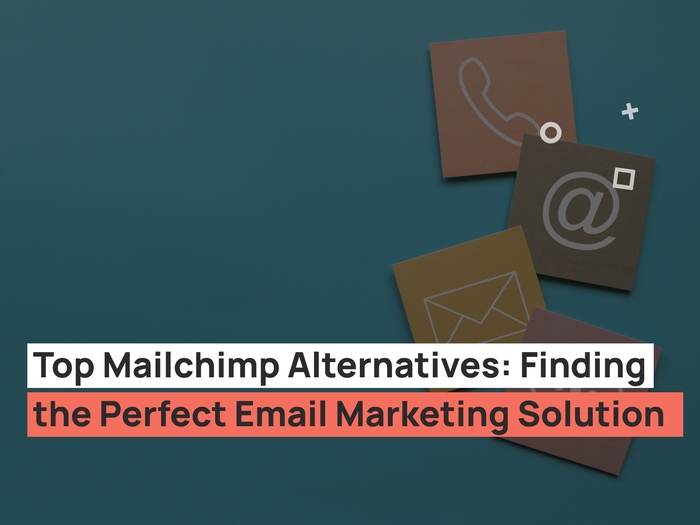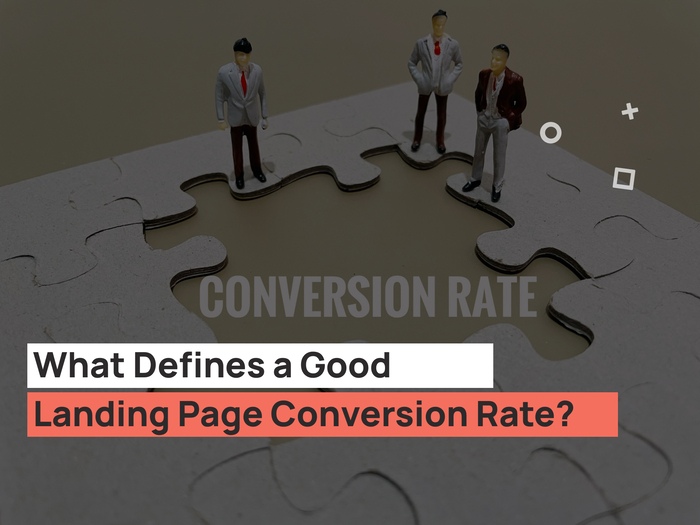Branding is crucial in any sector, and it plays a pivotal role in the triumph of businesses, irrespective of the market or audience. For businesses engaging in B2B transactions, the distinction and appeal of your brand are primarily driven by your branding strategy.
This approach not only differentiates your brand but also ensures it resonates with your intended market. Brands that successfully employ astute branding strategies, establish a distinctive brand identity, and execute potent marketing tactics have a significant advantage in capturing the attention of potential clients.
This underscores the importance of a solid B2B branding strategy for the prosperity of your small business.
In this piece, we delve into the subtleties of an effective B2B branding strategy. We offer actionable advice and insights to help you enhance your brand’s positioning and attract new clientele.

By adopting the strategies we discuss, you’re setting yourself up for success in achieving your most ambitious B2B marketing and sales objectives. With a powerful and memorable branding strategy, you’re equipped to engage and persuade your audience effectively!
What Does B2B Branding Mean?
B2B, short for “business-to-business,” refers to the commercial interactions and relationships between businesses. Unlike consumer-focused brands, a B2B branding targets corporate clients instead of the final consumers. B2B branding involves the deliberate creation and execution of a corporate brand strategy, designed to bolster the business achievements of a company operating in the B2B sector.
The Importance of Strong Branding for B2B Companies
- A strong brand is a significant factor in the success of B2B companies.
- Brands play an essential role in influencing purchasing decisions, which are made by people, even in B2B contexts.
- Trust in a brand is crucial, especially when details of products or services can’t be easily verified.
- For complex products and services that are difficult to communicate clearly and quickly, a trusted brand can act as a shortcut in conveying value and reliability.
- A well-established brand reduces the perceived risk for the buyer, making them more confident in their decision.
- The presence of a trusted brand streamlines the decision-making process in B2B transactions, allowing for quicker and more efficient choices.
Essential Elements of an Effective B2B Branding Approach
While distinct branding strategies vary, successful ones are anchored by several critical components. To elevate your B2B branding, attract dedicated customers, and foster growth, concentrate on these four pivotal elements:
Strategic Creativity
Strategic creativity is a cornerstone of effective B2B branding, blending imaginative thinking with business acumen to distinguish a brand in a competitive market. It involves creatively presenting a brand’s unique value, addressing target audience challenges with innovative solutions, and crafting memorable experiences to build long-term relationships.
This approach simplifies complex concepts for better engagement, aligns creativity with business goals for maximum impact, and keeps the brand agile and relevant in a dynamic marketplace.

Distinctive Brand Identity
Brand differentiation is crucial in effective B2B branding, serving as the key to setting a business apart in a crowded marketplace. This strategy focuses on highlighting the unique aspects and value propositions of a brand, distinguishing it from competitors. It involves identifying and emphasizing unique selling points, whether in terms of product innovation, customer service excellence, bespoke solutions, or industry expertise.
Brand differentiation in the B2B realm also extends to creating a distinct brand personality and voice, which resonates with the specific needs and preferences of the business audience. This can involve tailored messaging, specialized content, and targeted marketing strategies that speak directly to the concerns and aspirations of business clients.
Exceptional Customer Experience
Customer satisfaction transcends the mere quality of your product or service; it hinges on the holistic experience your brand provides. This encompasses every interaction, from the initial contact to post-sales support. In the competitive landscape of B2B, satisfied customers aren’t just loyal; they become passionate brand advocates.
Therefore, it is imperative to invest in comprehensive strategies. Equip your team with top-notch training, foster robust customer relationships, and continually refine your processes to ensure a consistently positive customer experience. By doing so, you not only secure customer loyalty but also harness the invaluable potential of delighted clients who willingly champion your brand.

Visually Appealing Website
As the primary interface for potential clients, a website design should not only be professionally aligned with the company’s branding, including logos and color schemes, but also strategically crafted to resonate with the target audience.
An intuitive navigation structure, clear and informative content layout, and responsive design are essential for a positive user experience. The website should serve as a central platform for engaging content like white papers, case studies, and blogs, showcasing the company’s expertise and thought leadership.
Compelling Messaging
The power of delivering convincing messages cannot be overstated. It’s about crafting communication that resonates deeply with a business audience, persuasively conveying the brand’s value and capabilities. This involves developing clear, concise, and impactful messaging that speaks directly to the needs, challenges, and aspirations of potential clients.
Effective B2B messaging goes beyond mere product features; it articulates the benefits and solutions in a way that aligns with the strategic goals of the client businesses. It requires a deep understanding of the target audience, including their industry dynamics, pain points, and decision-making processes.
Consistency
Consistency breeds recognition and trust, setting the stage for credibility and professionalism in your industry. It’s the glue that binds your brand story together, making it easier for your audience to connect with your values and mission.
In the long run, maintaining consistency across various channels and touchpoints not only builds trust but also nurtures enduring relationships with clients and partners, ultimately establishing your brand as a trustworthy and dependable force in the competitive B2B arena.
Forward-Focused Brand Engagement
To effectively navigate the challenges and opportunities of the future, it is crucial to adopt proactive brand marketing strategies. One key facet of this approach involves consistently informing your customers in advance about industry trends and new offerings.
By doing so, your brand not only distinguishes itself as a trusted industry leader but also adds tangible value to your clients’ business journeys. This approach empowers your clients to stay ahead of the curve, make informed decisions, and adapt to changing market dynamics.
Best B2B Branding Strategies to Focus On
For B2B businesses, crafting an impactful brand strategy is key. Here’s how to effectively position your brand to engage your target audience:
Engagement in Industry Events
Involvement in industry events and conferences is a powerful way to showcase expertise, network, and enhance brand visibility. Speaking opportunities, workshops, and sponsorships can elevate your brand’s profile. These events also provide rich content for your digital marketing channels and can inspire innovative ideas.
Content Marketing Initiatives
Content marketing is crucial in addressing customer problems and educating them about industry trends. Develop content like blogs, white papers, e-books, and videos that tackle the challenges faced by your audience. Incorporate a paid search strategy to direct potential customers to your content, increasing industry engagement.
Strategic Email Campaigns
Email marketing is pivotal for B2B success, with 64% of marketers acknowledging its role in achieving business objectives. Focus on announcing new products and features. Tailor your email campaigns to provide personalized content that appeals to both existing and prospective customers, enhancing the likelihood of forming new partnerships.
Dynamic Social Media Presence
In the initial stages of the buyer’s journey, potential clients often explore solutions on social media. Utilize these platforms to showcase your brand’s message, story, and values. Determine which platforms resonate most with your audience and focus on sharing insightful content, industry updates, and interactive engagement. Social media ads can further broaden your reach.
Collaborations with Influencers
Expanding your marketing reach through influencer partnerships can be highly effective. Partner with respected industry leaders and offer sponsored content opportunities. This approach not only strengthens your brand identity but also reaches new customers and companies, enhancing brand awareness with minimal strain on your marketing resources.

The Return on Investment (ROI) of a Robust B2B Branding
In the current data-driven decision-making, it’s critical to have measurable outcomes for your brand strategy. Key Performance Indicators (KPIs) are vital in this respect, transcending the realm of mere buzzwords to become essential metrics for gauging the effectiveness of your branding endeavors.
| Net Promoter Score (NPS) | This metric assesses how likely customers are to recommend your business to others. A high NPS typically signifies robust customer loyalty, reflecting the success of your branding strategy. |
| Customer Lifetime Value (CLV) | CLV calculates the total worth attributed to your company by a customer over the entirety of your business relationship. A substantial CLV suggests deep-rooted brand loyalty and is a useful gauge of your brand strategy’s enduring success. |
These KPIs are instrumental in quantifying the value of your B2B branding, enabling you to enhance and fine-tune your corporate branding strategies with targeted actions.
Conclusion
Branding in the B2B sector is a crucial driver for business success, as it not only differentiates a company but ensures that it resonates with the intended market. Effective branding strategies are key in establishing a distinctive brand identity and in capturing the attention of potential clients.
This article has provided insights into the subtleties of an effective B2B branding strategy, offering actionable advice to enhance your brand’s positioning and attract new clientele. By adopting these strategies, businesses set themselves on the path to achieving their marketing and sales objectives, underlining the importance of a solid B2B branding strategy for business growth and prosperity.
By staying attuned to the evolving needs of your market and consistently delivering value, your brand stands poised to achieve remarkable success in the B2B arena.



